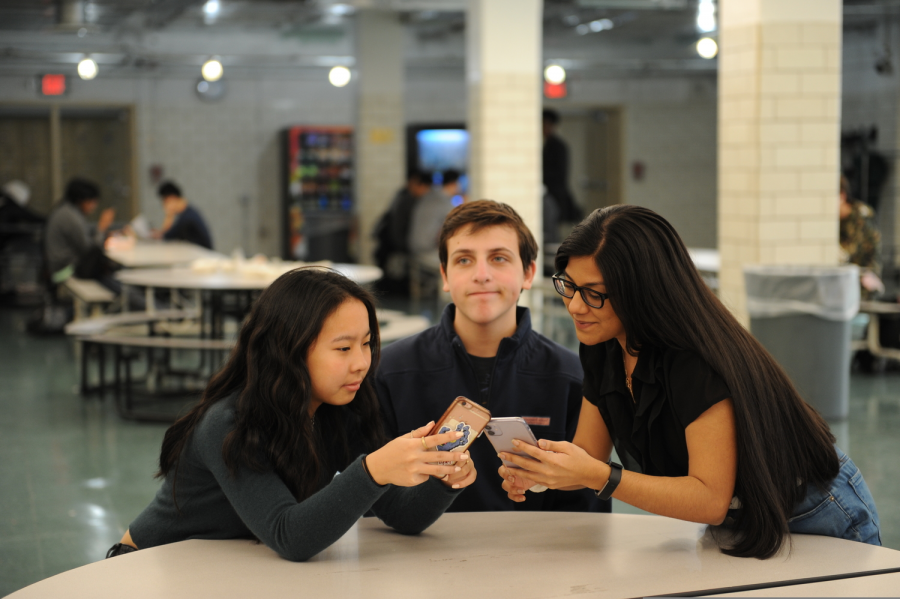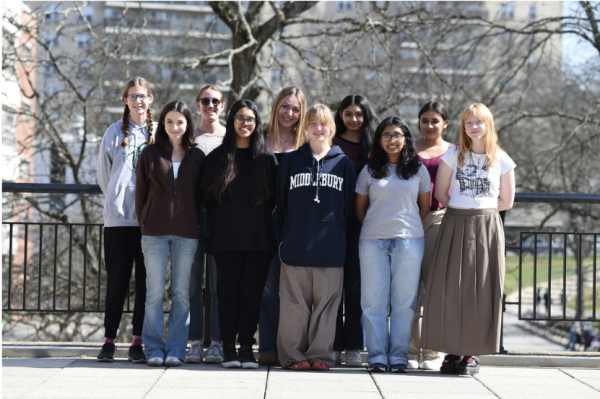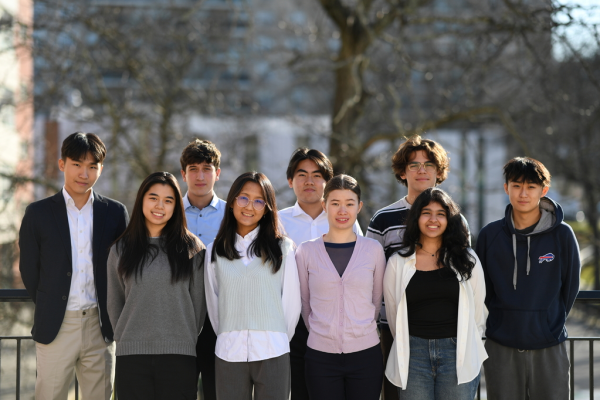We Survived 24 Hours Without a Phone
Phones have become an integral part of teenage interactions and all five students who participated in the experiment felt bored not being able to communicate or socialize as they otherwise would have.
“I reached for my phone so many times during the day. I definitely felt like something was missing when I didn’t have it,” said Aoife Hogan ’21. For many Bronx Science students and Americans alike, phones are just as important as their keys or wallet. The public is becoming increasingly dependent on these devices for both information and communication purposes.
The Blackberry was the first portable smartphone. Released in 1999, these devices quickly gained popularity as they allowed people to have constant access to their e-mail and messages. Although the rise of Blackberry devices resulted in a dramatic increase in overall productivity, it only took a couple of years before these devices were seen to be addictive, given people’s overall usage of them.
In 2016, CNN reported that 50% of teenagers felt that they were addicted to their phones and 80% said that they checked their phones hourly. That number has only grown in recent years, as it is becoming more common for children as young as ten to own smartphones. It is not uncommon to see a waiting room full of people staring down at their phones or a school bus full of teenagers with earbuds, engrossed in their devices. People are hardly ever bored because they constantly have easily accessible entertainment in their pockets. However, this need for constant stimulation makes it hard for many to live without phones for long periods of time. Many Bronx Science students came to the same consensus.
To observe teenagers’ habits regarding cell phone use, five students at Bronx Science volunteered to inhibit their smartphone usage for 24 hours and report any observations that they had during their media free day. The students were allowed to keep their phones with them in case of emergencies but they did not check their messages or use them unless it was deemed absolutely necessary.
“Without a phone, I was forced to do more things that I wouldn’t normally do, but it was also boring, and the day felt like it lasted a lot longer,” said Hogan. She shared that she uses her phone primarily for news and entertainment. However, she also uses her phone to play video games or check her social media accounts. These are typical examples of things the majority of American teenagers do on a daily basis.
Although all five of the students reported feeling bored at various points throughout the day, three students also reported that they felt more productive without their phones.
“When I was home, I procrastinated a lot less because my primary distraction is social media,” said Angelena Bougiamas ’22.
While the productive use of smartphones should be recognized, they also have the equally existing power to distract students and divert their attention from schoolwork.
Although there are many negative effects of current smartphones, they do provide a substantial benefit to the American population. Communication has become a lot easier because of cell phones and this has led to safer environments for children and teenagers. Smartphones have the ability to aid productivity because they can function like mini-computers. Students and workers alike are able to work anytime and anywhere without a computer because of the smartphone’s portability.
Through this experiment, these students explored the impact that their cell phones have on their lives. There is no clear answer to the question of whether smartphones provide more benefits or detrimental consequences to students. However, a majority of the students who participated in the twenty-four hour media ban looked on their cell phone free day fondly. “I learned how peaceful my day could be without access to social media, because I didn’t constantly feel the need to ‘check in’,” said Bougiamas.
“When I was home, I procrastinated a lot less because my primary distraction is social media,” said Angelena Bougiamas ’22.

Angelena Bougiamas ’22 feels that her smartphone inhibits her efficiency throughout the day.
Ruhika Ponda is a Copy Chief for ‘The Science Survey.' She finds journalism fascinating because it gives her a platform to inform dozens of readers about...











